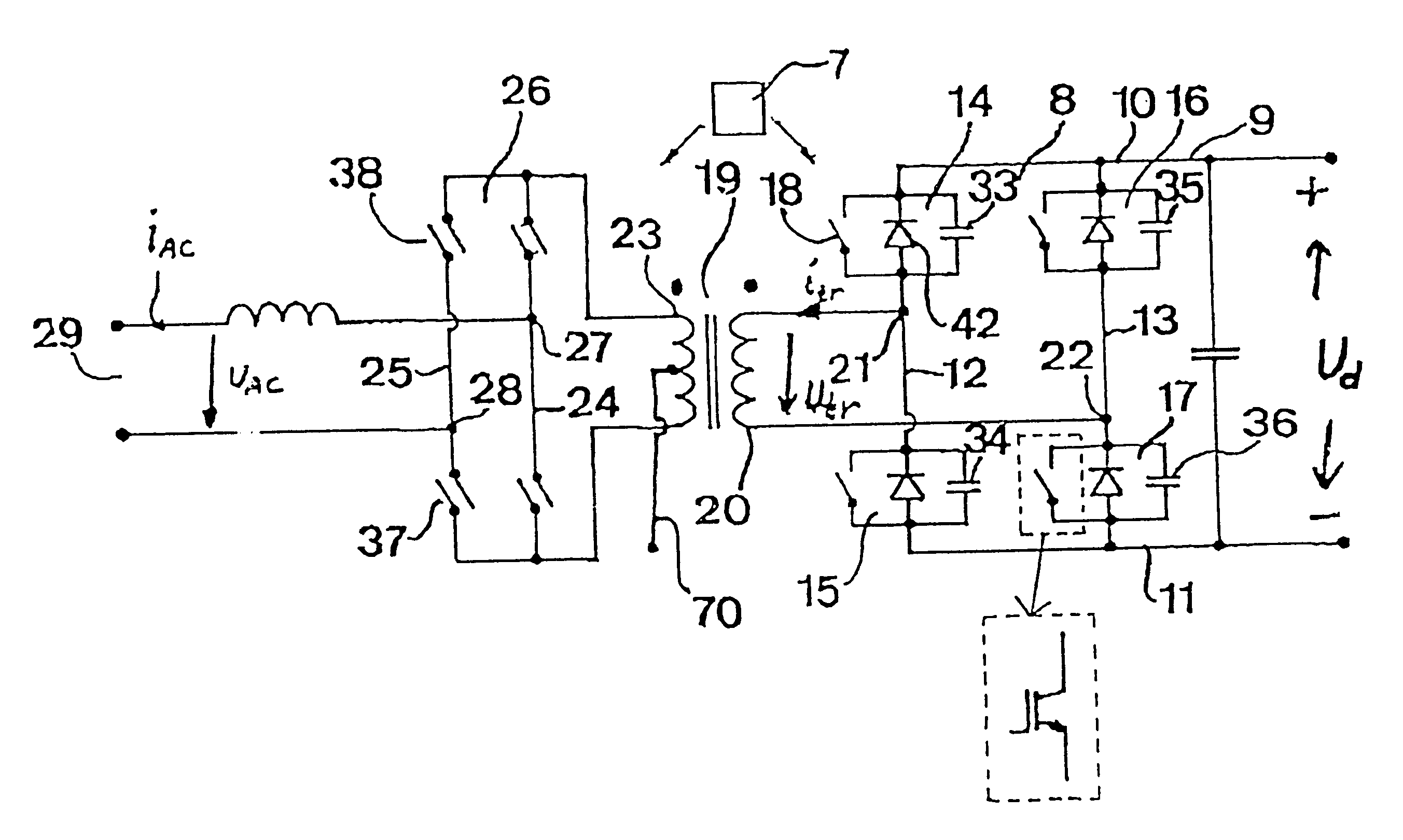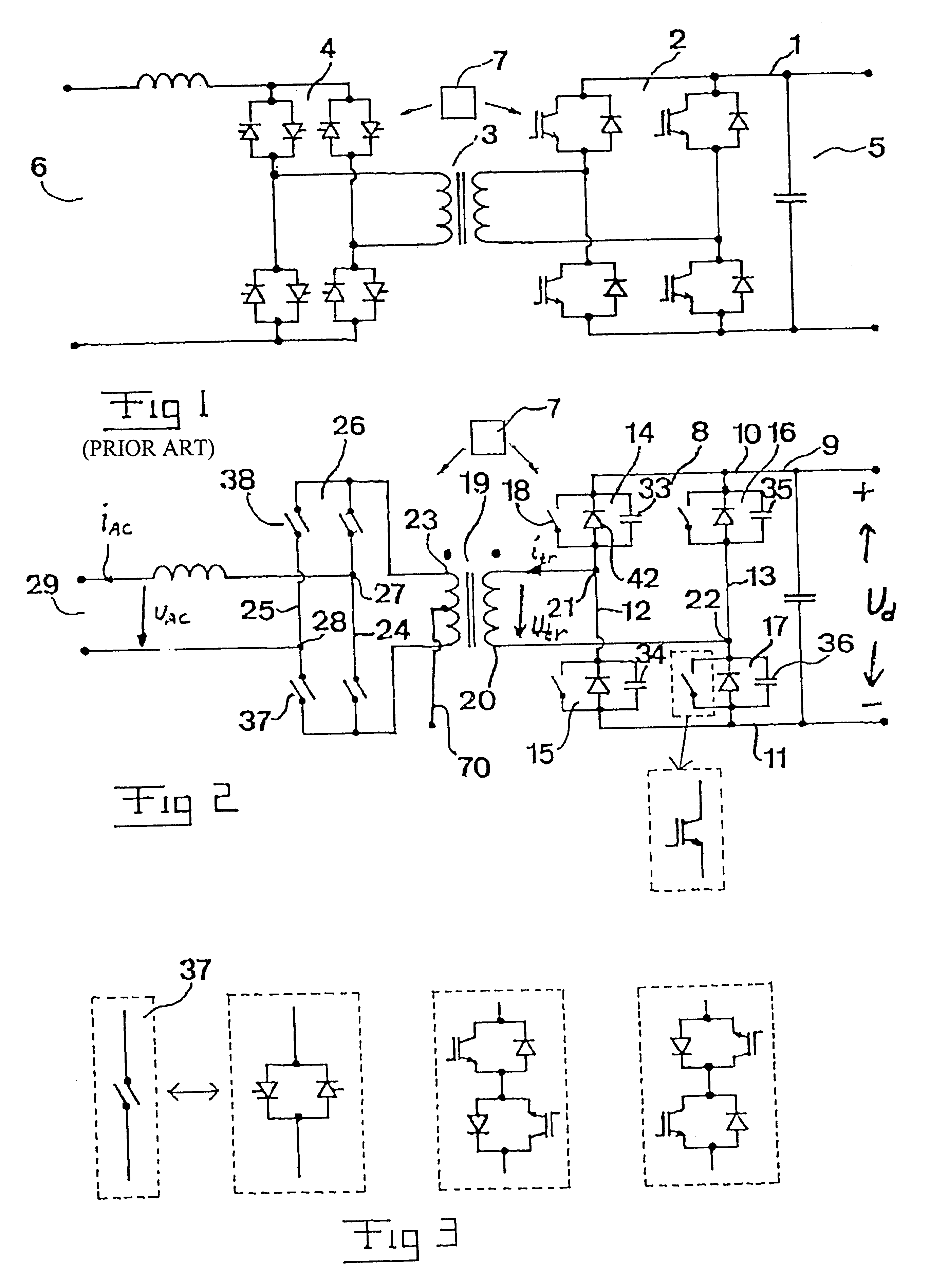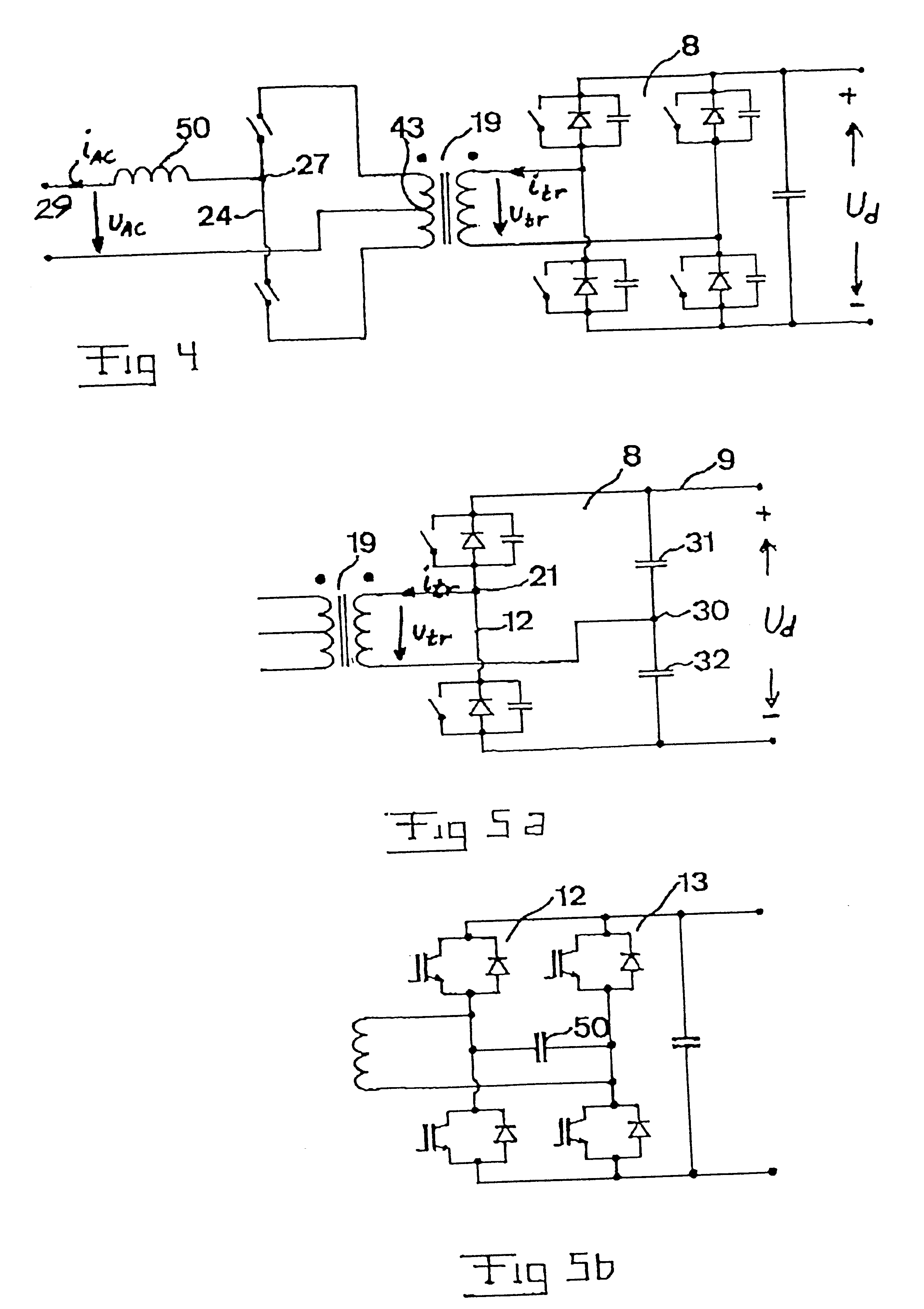Apparatus and a method for voltage conversion
a voltage conversion and apparatus technology, applied in the direction of electric variable regulation, process and machine control, instruments, etc., can solve the problems of low transformer efficiency and thereby apparatus efficiency, deformation of the curve shape of the alternating voltage curve, and more bulky transformers
- Summary
- Abstract
- Description
- Claims
- Application Information
AI Technical Summary
Problems solved by technology
Method used
Image
Examples
Embodiment Construction
FIG. 2 illustrates an apparatus according to a preferred embodiment of the invention having a VSC-converter 8 with a direct voltage intermediate link 9 with a positive 10 and a negative 11 pole and two phase legs 12, 13 (1 and 2, respectively, in the formulas following) interconnecting the two poles and having two current valves 14-17 connected in series. Each current valve has one semiconductor device 18 of turn-off type, such as an IGBT, and a rectifying member 42, such as a rectifying diode, connected in anti-parallel therewith. A snubber capacitor 33-36 is connected in parallel with each said semiconductor device 18 and diode 42. A transformer 19 is with two opposite ends of a first winding 20 connected to an output 21, 22 each of the VSC-converter and with a second winding 23 (having a connection 70 to the midpoint thereof for grounding purposes) thereof with the opposite ends connected to the opposite ends of two phase legs 24, 25 (1 and 2, respectively, in the formulas follow...
PUM
 Login to View More
Login to View More Abstract
Description
Claims
Application Information
 Login to View More
Login to View More - R&D
- Intellectual Property
- Life Sciences
- Materials
- Tech Scout
- Unparalleled Data Quality
- Higher Quality Content
- 60% Fewer Hallucinations
Browse by: Latest US Patents, China's latest patents, Technical Efficacy Thesaurus, Application Domain, Technology Topic, Popular Technical Reports.
© 2025 PatSnap. All rights reserved.Legal|Privacy policy|Modern Slavery Act Transparency Statement|Sitemap|About US| Contact US: help@patsnap.com



